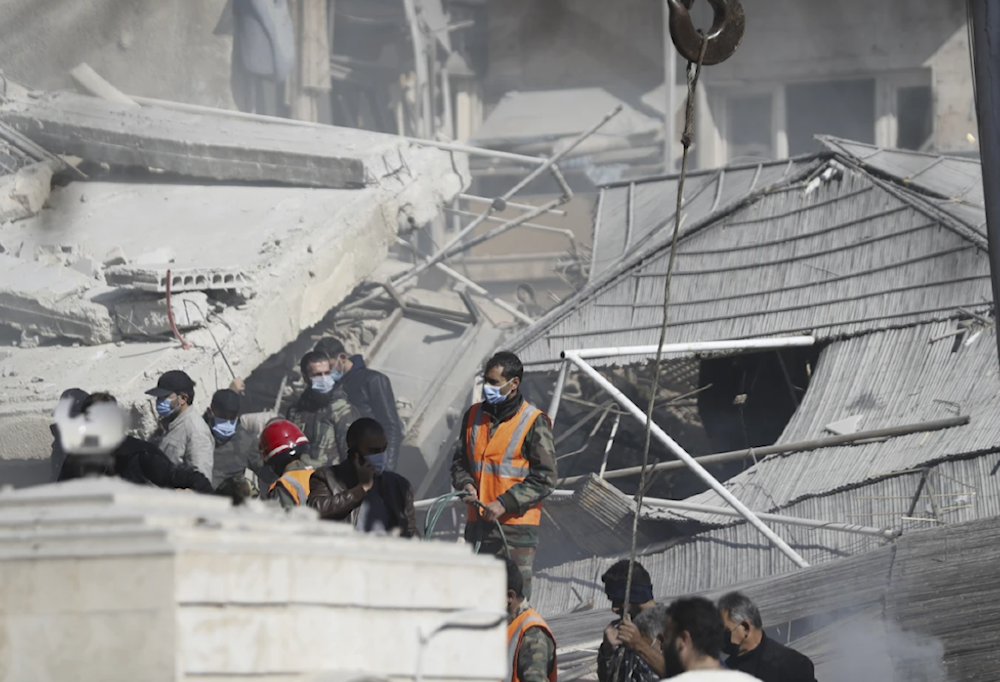IOF strike 'stunned' Syria, makes normalization 'difficult': Syria FM
Syria’s FM says Israeli strikes after al-Assad’s fall shocked the nation and made normalization with "Israel" "difficult", despite ongoing regional talks.
-

Emergency service workers at a building hit by an airstrike in Damascus, Syria, on January 20, 2024 (AP)
Syrian Foreign Minister Asaad al-Shaibani said Israeli strikes on his country following the fall of Bashar al-Assad’s regime left Syria “stunned” and have made normalization with "Israel" "difficult".
In an interview with CNN’s Fareed Zakaria, aired Sunday from the Council on Foreign Relations in New York, al-Shaibani accused "Israel" of “obstructing” the Syrian government when it faced a surge in sectarian violence in the south.
“We are no threat to anyone in the region, including Israel,” he said. “But these new policies of cooperation and peace were met by threats and strikes.”
After al-Assad’s ouster last December, "Israel" unleashed airstrikes across Syria and deployed ground forces into a demilitarized zone for the first time in 50 years. The occupation cited the moves as a prevention to chemical weapons and missiles from falling “into the hands of extremists.”
Normalization hurdles
The top Syrian minister said Israeli military actions have complicated prospects for peace, explaining that this makes "talk about normalization and the Abraham Accords" a bit "difficult".
Israeli Prime Minister Benjamin Netanyahu, however, insisted Sunday that the "Abraham Accords" remain “resilient and strong” despite the war on Gaza and predicted their expansion.
Sectarian clashes have surged in Syria since al-Assad’s fall, with deadly violence in Latakia and Druze-Bedouin clashes in Sweida. "Israel" has justified strikes by claiming a commitment to protect the Druze community.
Al-Shibani countered, “Israel supported outlaw groups and obstructed the Syrian government from solving the problem.”
Relations with Washington
Despite tensions with "Israel", al-Shaibani praised Washington’s decision to lift sanctions imposed on the Assad government. “This position was met with great support among Syrians,” he said.
At the UN last week, new Syrian President Ahmad al-Sharaa urged full sanctions relief, calling al-Assad’s fall a moment of “liberation” and vowing a fresh start for the country.

 2 Min Read
2 Min Read










